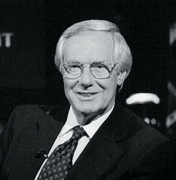The Book Thief
 The trick when watching a movie based on a popular novel is to forget comparisons with the book and simply ask yourself: Does this work as a film? In the present case that was easy for me because I haven’t read Markus Zusak’s novel but I still asked myself the question and the answer was: Not really.
The trick when watching a movie based on a popular novel is to forget comparisons with the book and simply ask yourself: Does this work as a film? In the present case that was easy for me because I haven’t read Markus Zusak’s novel but I still asked myself the question and the answer was: Not really. The action, set in a small German town from 1938 and into the Second World War, is narrated by Death and tells the story of Liesel, the eponymous and initially illiterate book thief, who is taken in by kindly Geoffrey Rush and his less kindly wife Emily Watson when her Communist mother flees the Nazis.
Rush teaches her to read and soon she is enchanted by words; so enchanted in fact that – and this explains the title – she breaks into the mayor’s home to borrow his books. This early stuff and the girl’s friendship with the loyal Rudy (Nico Liersch) are nicely done and Sophie Nélisse, a 13-year-old Canadian actress, makes an appealing Liesel.
But then we get into the war and the real meat of the matter, and somehow the film loses its way. Scenes of Kristallnacht (a night of anti-Semitic violence), the public burning of books, the bombing of the town, a boy plunging into a freezing river to rescue a diary and a house-tohouse search by the Nazis, should have us biting our nails, but don’t.
The latter would have been particularly dangerous for Rush and Watson because they are hiding a young Jewish fugitive, Max (Ben Schnetzer) in their basement at great risk to themselves but what ought to have been a seriously tense moment turns out to be anticlimactic. And that – along with too many subplots cluttering up the action – is one of the problems with the film: the Second World War was a nasty business and the Nazis were very nasty people but little of this really comes through in Brian Percival’s film.
Bad things happen and people die but such incidents, you feel, should have been accompanied by more suspense and tension than Percival (perhaps best known for directing episodes of Downton Abbey) gives us.
It is nevertheless an interesting film with some decent moments. It looks very good, the relationship between Liesel and the ailing Max down there in the basement is touchingly shown and the performances are generally first rate. Rush’s portrayal of a good, decent man determined to do what is right is particularly strong and Watson, of Harry Potter fame, is as convincing without a wand as she is with one.
But the novel, whose ultimate message seems to be that the word (or in this case the book) is mightier than the sword, was written for a young adult audience and it’s hard to escape the suspicion that the movie was perhaps a little sanitised in a bid to reach and not overly upset that same audience.
It catches the eye but never really touches the emotions the way you feel it should.


